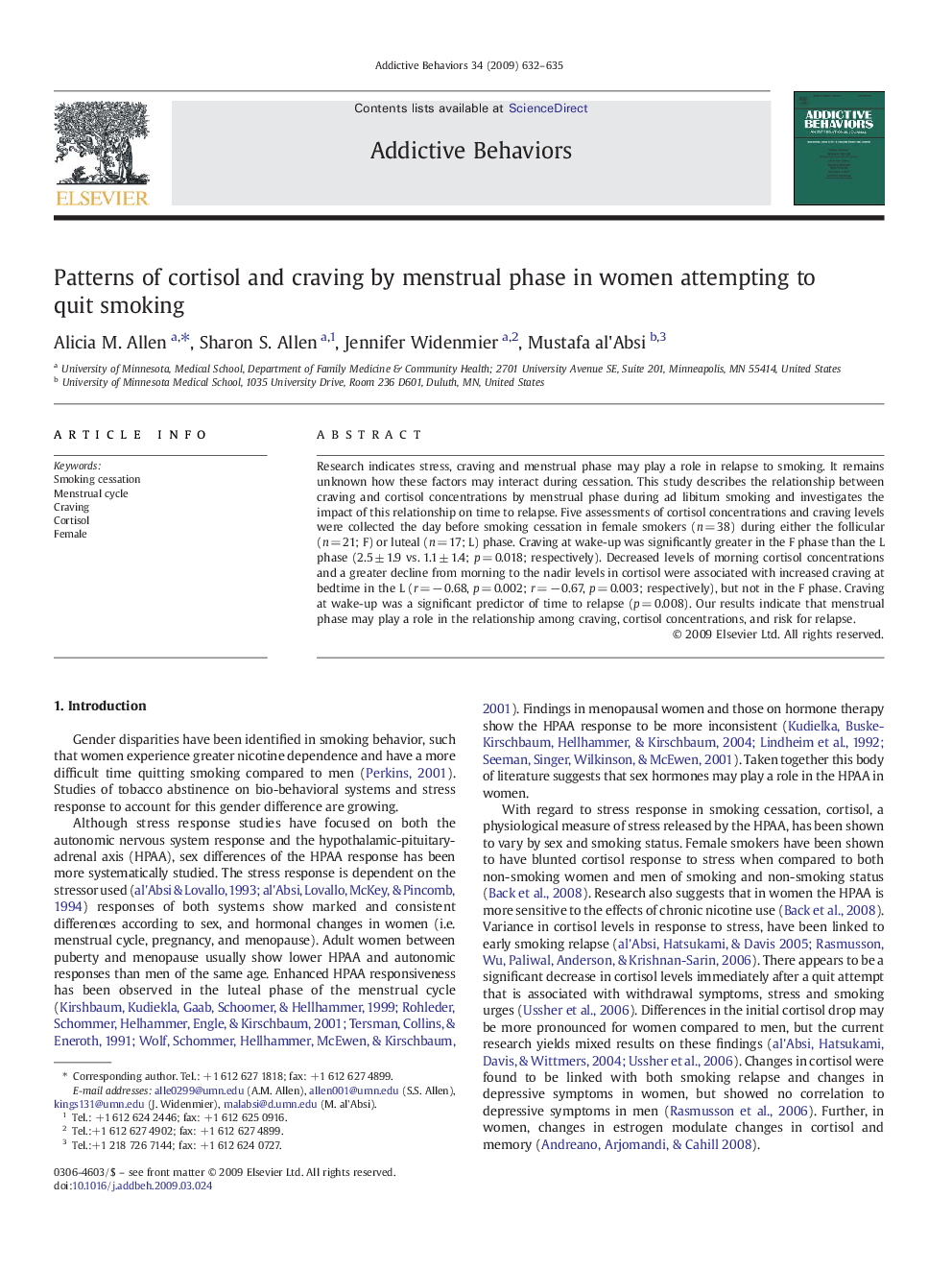| Article ID | Journal | Published Year | Pages | File Type |
|---|---|---|---|---|
| 900356 | Addictive Behaviors | 2009 | 4 Pages |
Research indicates stress, craving and menstrual phase may play a role in relapse to smoking. It remains unknown how these factors may interact during cessation. This study describes the relationship between craving and cortisol concentrations by menstrual phase during ad libitum smoking and investigates the impact of this relationship on time to relapse. Five assessments of cortisol concentrations and craving levels were collected the day before smoking cessation in female smokers (n = 38) during either the follicular (n = 21; F) or luteal (n = 17; L) phase. Craving at wake-up was significantly greater in the F phase than the L phase (2.5 ± 1.9 vs. 1.1 ± 1.4; p = 0.018; respectively). Decreased levels of morning cortisol concentrations and a greater decline from morning to the nadir levels in cortisol were associated with increased craving at bedtime in the L (r = − 0.68, p = 0.002; r = − 0.67, p = 0.003; respectively), but not in the F phase. Craving at wake-up was a significant predictor of time to relapse (p = 0.008). Our results indicate that menstrual phase may play a role in the relationship among craving, cortisol concentrations, and risk for relapse.
